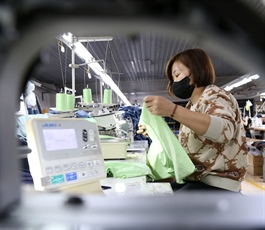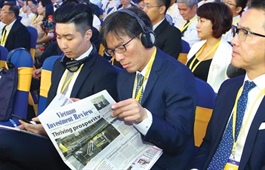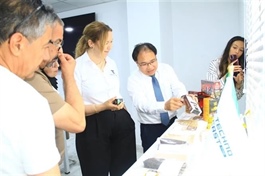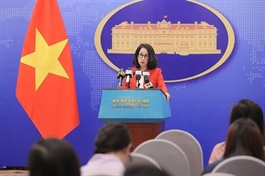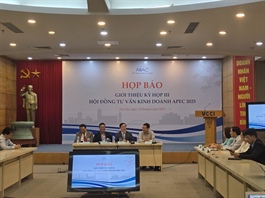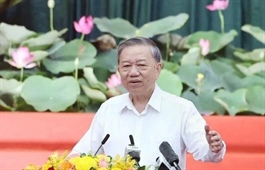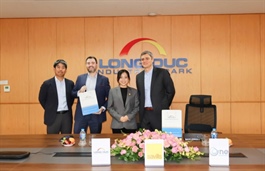SBV Governor calls for overhaul of FDI attraction strategy to drive stronger growth
SBV Governor calls for overhaul of FDI attraction strategy to drive stronger growth
The analysis from an investment perspective shows that the economy’s growth has been heavily capital‑driven, yet efficiency remains low as reflected by Việt Nam's Incremental Capital-Output Ratio (ICOR) being significantly higher than global and regional averages. This underscores the imperative to enhance capital‑use efficiency.
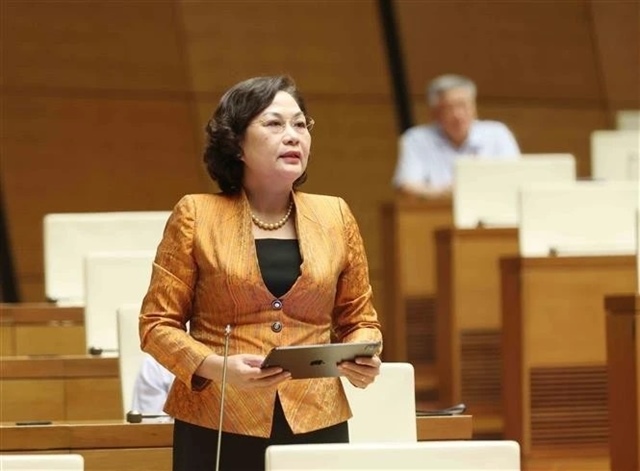
Governor of the State Bank of Vietnam (SBV) Nguyễn Thị Hồng |
Governor of the State Bank of Vietnam (SBV) Nguyễn Thị Hồng has stressed the need to revamp the country’s foreign direct investment (FDI) attraction strategy for the next phase, shifting focus toward the transfer of capital, technology, and management and forging stronger links with the domestic economy.
At a Q&A session of the 15th National Assembly’s 9th session on June 19 morning, Hồng cleared up several topics related to growth drivers and outlined solutions to ensure both high and sustainable growth.
She noted that reviewing and reassessing the drivers of economic growth is essential, and this is also mandated by the Party Central Committee, the Politburo, and the National Assembly.
The analysis from an investment perspective shows that the economy’s growth has been heavily capital‑driven, yet efficiency remains low as reflected by the Incremental Capital-Output Ratio (ICOR) being significantly higher than global and regional averages, Hong said, adding that this underscores the imperative to enhance capital‑use efficiency.
She cited Minister of Finance Nguyễn Văn Thắng's speech, saying that the country can fully allocate the necessary funding while safeguarding the public debt and foreign debt indicators.
According to the central bank governor, looking ahead to 2045, Vietnam plans to implement many large‑scale projects, requiring relevant ministries to identify funding sources, borrowing capacity, and mobilisation methods. The implementation process requires setting up disbursement schedules and contingency reserves to ensure that financing is secured before projects begin. This approach helps avoid funding gaps, allowing projects to proceed smoothly without putting excessive strain on the macroeconomy. It aims to achieve strong and sustainable growth per the resolutions of the Party Central Committee, the Politburo, and the National Assembly.
Hong underlined the need to tap into domestic consumption and leverage the domestic demand as key growth drivers, to sustain economic growth and reduce reliance on exports, which are vulnerable to shifts in the macroeconomic conditions of other countries worldwide.
Only breakthroughs in technology, innovation, and digital transformation can drive productivity gains and enable double-digit growth, she noted, adding that it is crucial to address key obstacles to long-term growth, such as climate change and the risk of population ageing.
Regarding the role of the banking sector in promoting economic growth drivers, Hong said that as the lifeblood of the economy, the banking sector plays a key role in mobilising idle capital for lending, thereby activating, guiding, and spreading momentum across growth drivers.
She revealed that during this term, credit growth in the banking system has increased by around 14–15 per cent, a rate that is relatively high compared to many countries around the world.
By late 2024, the credit-to-GDP ratio reached 134 per cent, underscoring the critical role of bank credit in driving economic development. Credit not only fuels investment in production but also supports consumption and export growth. The SBV has set a credit growth target of 16 per cent in 2025, with room for adjustment depending on inflation remaining under control.
As the core provider of payment and financial services, the banking system will continue to grow robustly, diversifying its services to meet the demand of businesses and people.
For monetary policy management, Hong stated that the central bank will keep a close watch on economic developments to adopt flexible and appropriate policy tools, control inflation, maintain macroeconomic stability, ensure stability in the monetary and foreign exchange markets, and the safety of the banking system.
In response to lawmakers' concerns about implementing the 2 per cent interest rate support policy for loans related to green and circular projects and those applying ESG standards in line with Resolution 68 of the Politburo on the development of the private economic sector, Hong stated that the SBV will work closely with the Ministry of Finance to issue clear guidelines to address the shortcomings of the interest support package under the economic recovery programme.
In his remarks, NA Chairman Trần Thanh Mẫn called on the central bank to promptly develop an effective plan to implement the 2 per cent interest rate support policy, noting that this is a measure of great concern to the business community.
- 19:53 19/06/2025





